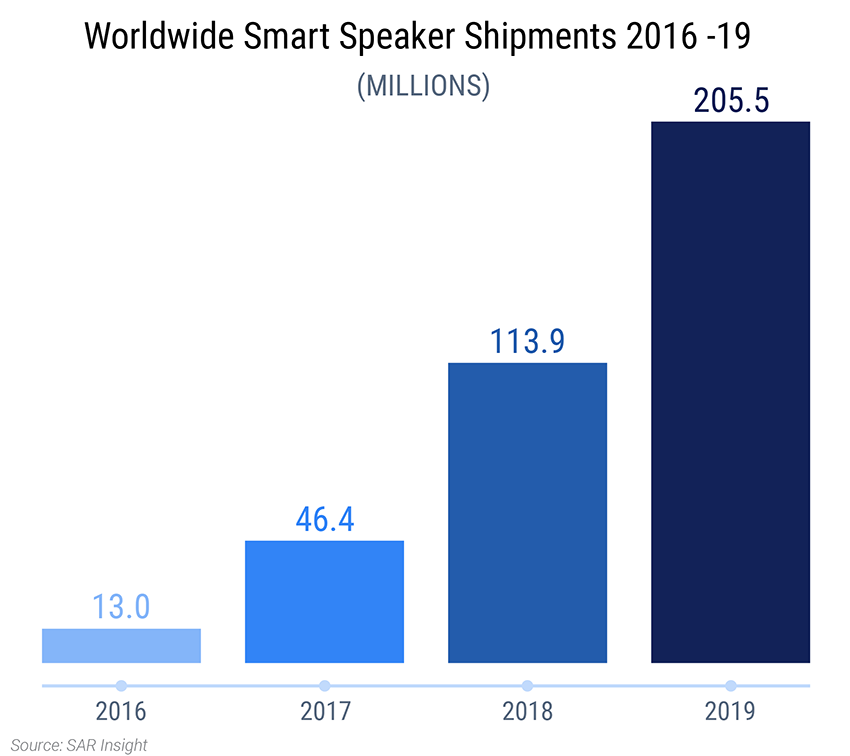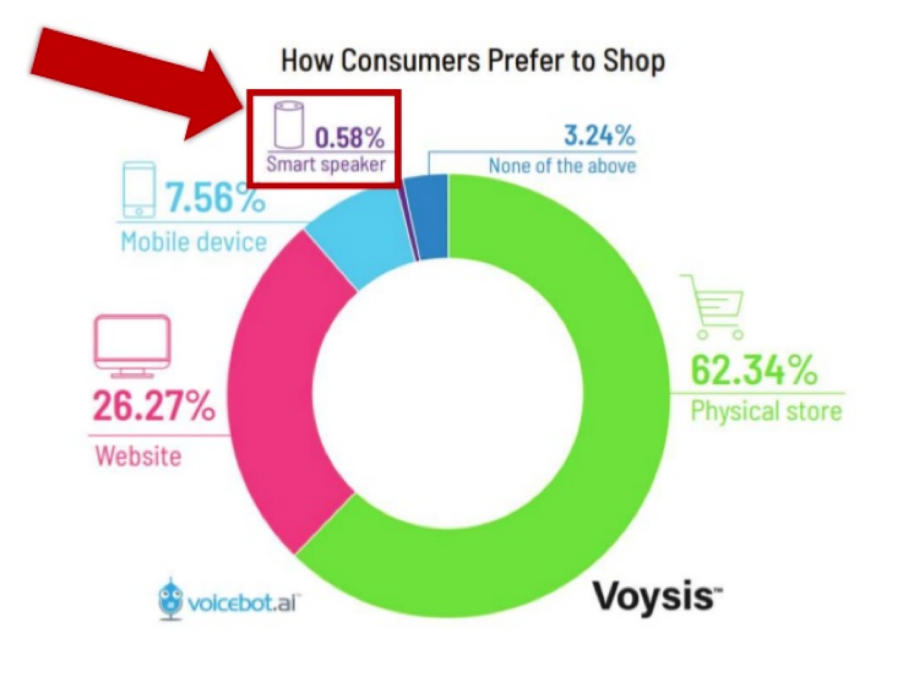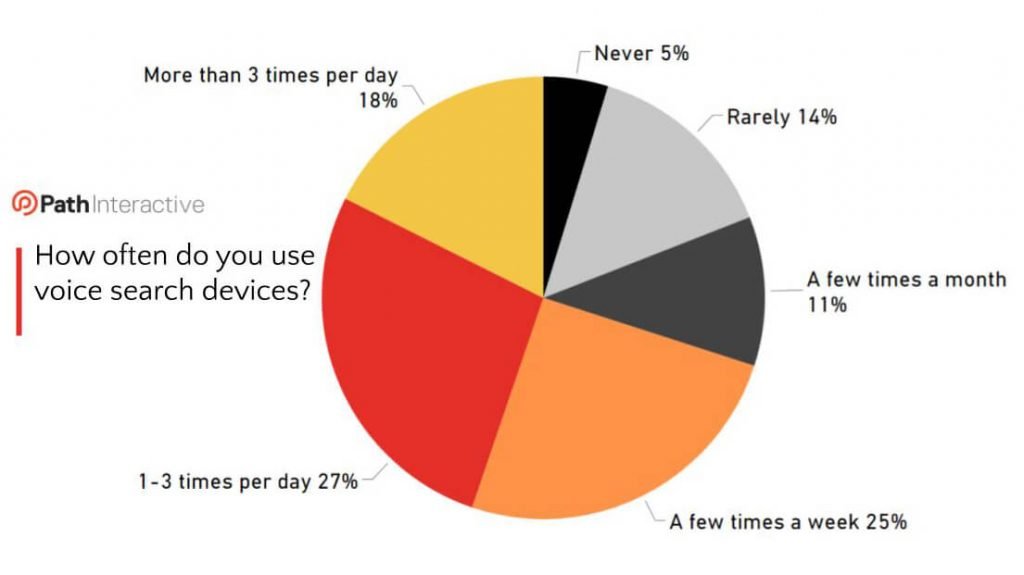Congratulations on your curiosity regarding voice search, SEO and how technology affects your website rankings!
Congratulations on your curiosity regarding voice search, SEO and how technology affects your website rankings! This article will help you understand the tech to make best optimizing decisions going forward...
Guest post by Christian Carere
What's The Voice Search Hoopla?
Is voice search everything it’s cracked up to be? There has been so much buzz about how voice search was going to revolutionize the way we live. It has literally been the Y2K of marketing.
Since the hoopla began every marketer has been scrambling to figure out how to prepare for this giant event in which voice assistants would change the entire marketing system.
Looking back to 2018, voice search was the shiny new object that threw everyone into a frenzy with impressive statistics to demand the attention of businesses and marketers. Stats such as:
- Voice queries have increased by 3400% (Sitecentre)
- 40% of all voice search results come from featured snippets (Digital Ducats Inc.)
It is easy to understand how voice search could have a major impact on the way content is created and optimized.
Just as a story retold changes shape, so do quotes from industry influencers. One quote has undoubtedly fueled the hype and misled many marketers to believe that voice search would account for 50% of all total voice searches by 2020.
Before you go all haywire, let’s quell the uproar rising within you with some cold, hard facts...
This was an estimate made in an interview:
"In five years' time, at least 50% of all searches are going to be either through images or speech."
Andrew Ng 2014, Fast Company
The quote has been echoed and published in almost every voice search article since on popular sites such as Wordstream, Comscore, Forbes and a long list of others.
Despite Econsultancy publishing an article to clear the air by stating the facts, major publications continue to feature this misleading quote. The truth behind it was Andrew Ng was commenting on the status of voice search in China and was referring to its adoption by users on the search engine Baidu.
Google introduced voice search in 2008 and the Chinese hadn’t started until 2012. By 2014, only two years later, Baidu had surpassed Google’s degree of accuracy in voice recognition and was leading the way at 95% accuracy.
The comment by Andrew Ng was made because of the current adoption rate Baidu users were demonstrating that voice search would reach 50% of total searches on Baidu by 2020.
Where Do We Stand?
So, inflated statistic straightened out, where does that leave us?
We are currently amidst a smart speaker sales boom. After a year where sales reached more than 112 million shipments worldwide in 2018, another record year for sales followed. Currently, 21% of Americans own a voice assistant and that number will undoubtedly rise.

- What does that mean for marketers and businesses that are looking to take advantage of this technology?
- How does this change the way we promote products and services online?
For the most part, voice search has steadily remained effective for local businesses. Consider the application of voice-activated searches and currently, the most popular commercial application is for finding local information. Rarely do people use voice assistants for shopping (although re-ordering previously purchased items can be done with ease through Amazon).
At the Brighton SEO Conference in April 2019, an important statistic was presented that might raise a concern with eCommerce retailers. Of all the preferred methods of shopping, 0.58% of people selected a voice assistant to purchase a product.

At the same conference, speakers were bombarded with questions from people asking about what the true numbers really were on voice search.
- How many searches were activated by voice?
- How many voice searches would replace regular searches?
The summary response:
“…for the most part if you make a website such that the information is easily accessible and useful for search engines and for users as well, then you don’t need to do anything special for voice.”
John Mueller
His comments confirmed a growing hunch that a huge number of voice-activated searches were not actually searched at all, but commands.
The speakers at this conference definitely raised some doubts about the commercial value that voice search offers.
The Truth About Voice-Activated Search
Path Interactive conducted a study consisting of 620 respondents to get answers straight from the horse’s mouth. Of the many statistics that they were able to produce, the most notable was the different uses that their respondents had for voice assistants.

The majority of people who use voice assistants 1-3 times a day are using them to:
- Play music
- Turn lights on and off
- Set reminders and alarms
In short, most are still keeping it simple. Not too much past voice search settings. Many of the functions voice assistants provide for their avid users are not commercial in nature but assist in everyday activities.
Despite the bubble being burst, there’s undeniable evidence that voice-activated search is still making its way into our lives in a big way. You can’t discount the fact that local businesses are benefiting from the traffic and that users will listen to a recipe online to help them cook a dish.
How Your Business Can Benefit
If your business benefits from local traffic, you would do well to make sure your local SEO is up to par. That means not only stating your name, address and phone number on your website, but marked up in HTML, schema and an updated and optimized Google My Business profile.
Optimize for rich snippets using conversational toned questions as headings. Google home answers 80% of its queries using featured snippets. Use title tags in your headings and the HTML for ordered lists where necessary.
Page speed is a factor when determining what answer will best serve a voice query. Structured data mark-up works well to get you featured in an answer by giving search engines easily accessible data in the language recommended by Google.
Avoid large images, multiple server requests and heavy coding in your header to keep your page loading quickly. Use CDN’s and plugins to assist you with speeding up the load time of your pages. A voice search only produces one answer as a result, so give your page the best chance of being featured by reducing your pages' load time below the three-second mark.
The Future Of Voice Search
There’s no doubt that voice search will continue to grow in popularity and become a larger part of our daily lives. 2020 won’t be a year where 50% of total searches are voice-activated. However, we will definitely move closer to that estimation as the accuracy of voice recognition improves.
Until then, keep optimizing for featured snippets and consider using more conversational tones in your headings to prepare for a future where screen-less searches are a certainty.
About The Author

Christian Carere is an avid contributor to the digital marketing community and a social media enthusiast. He founded Digital Ducats Inc. to help businesses generate more leads and new clients through custom-designed SEO strategies. Connect with him on LinkedIn.
7 Replies
-
Hey Keri, This is me Jeeva, Happy to see another article, I have a doubt, Can we set a third parties voice assistant as a default assistant on android mobile? I’m planning to buy software kindly help me!
-
Introducing voice assistants to your workforce will impact your consumer experience but will also improve your company’s overall productivity levels.
-
Hi Author, Nice work. This site is very perfect and useful information.
-
Pingback: 2020 Digital Marketing Trends From 22 Marketing Experts
Leave a Reply

Like what you see? We've been told our blog posts are like potato chips: You can't read just one...
Subscribe to receive them fresh in your Inbox, and you can grab our best insights about social media marketing before everyone else sees it!

Relevant Resources
view allThe True Cost Of Letting Peak Sales Periods Pass You By

Three Surprising Signs You’re Still Silencing Your Female Employees

How Ongoing Training In The Workplace Can Drive Long-Term Business Growth






































By TechyJeev on